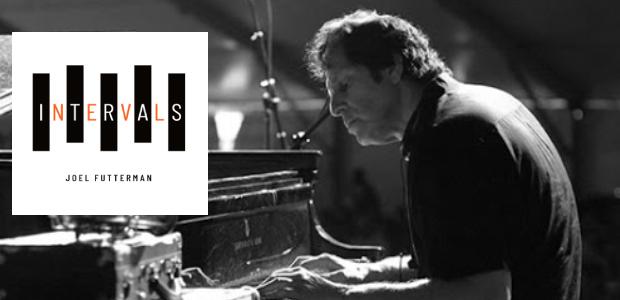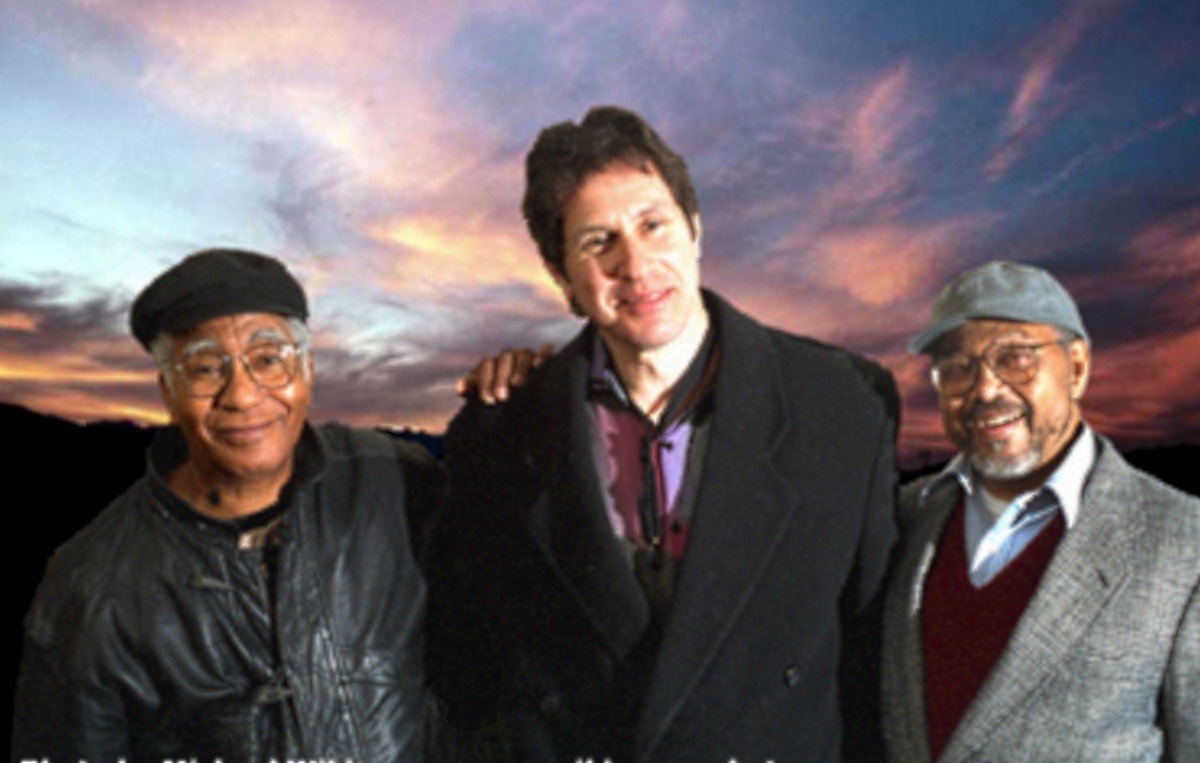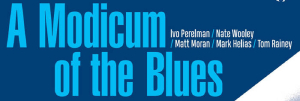The music that I’m playing is about life and death - interview with Joel Futterman

What can a musician like you do in the times of social isolation?
Joel Futterman: We have never experienced anything like this in our lifetimes. Not just musicians, but everyone. Whatever you ask me, I can only speak from my own perceptions and experiences in life. This is a very difficult time for many people, especially when people worry about food and shelter. Also I feel sad about people suffering from this virus. Many musicians as well as many other people are out of work and are having trouble surviving. I feel empathy for people having these difficult moments.
It’s very serious time. It makes me think of how vulnerable we are in any given moment. Unfortunately, we are not going outside. We are quarantined. There are several performances that I will be missing, but I think it’s more important to have a feeling for people that have a very difficult time and especially for those people who caught this virus. There are people suffering with illness and tragedy.
For me the present moment is very important. Many years ago my mom got sick and six months later she passed away. This was a transformative and dramatic experience in my life. What I realized is that it is very important to feel every moment of life. I use death as a reminder to experience this state of being. There is so much happening in each moment. When I feel my senses heightened by experiencing each moment, so many things seem to be infinite. I experience an extraordinary feeling when I express myself creatively. Over the years, many years, this feeling has become much more natural. However there’s still a feeling of very deep emotion for people that are suffering. Of course, there are people who are suffering all the time. I always say that the music that I create is about life and death.
Each moment is so precious. There is obvious beauty in any given moment. Carlo Rovelli wrote a book called “The order of time”. He said that “time is an illusion and life is a series of relationships and events”. I call it intervals. Now we are talking and I appreciate your interest in creative expression. After this conversation we’ll get off the phone and go somewhere else. Another interval happens. That’s life.
Does the playing and listening to the music give you a special power to survive in these times?
JF: Well, music has always been a comfort for me. I love to play music and this is why I play. Some people call the music that I play “free jazz.” I’m am not adverse to that term but the word free sometimes has a negative connotation for me. Sometimes the connotation implies that the music is random. The music that I play is not random because the music is guided by intensive listening. I’m not hearing the totality of the music. As I am playing I hear each individual phrase, connection, and resolution that is going on. When I listen to the total composition, I listen to the musical phrases, connections, resolutions, transitions, dynamics and the story that takes place. The intensive listening allows me to create a cohesive spontaneous composition.
For me solitude, being with myself, has never been a problem. The music and creativity is certainly a way to cope with what’s going on. The music is always emotional. It’s always always a spiritual experience for me.
More importantly, maybe the world will one day be like a caring a family. The priorities will be Peace, Health, Love and Help the Less Fortunate.
I was listening to your monologue about creative process in music. You said that bebop and blues are your musical backgrounds. Why these genres are so important for you?
JF: I grew up in Chicago. I used to listen to blues and bebop along with other genres of music. I loved listening to Charlie Parker, John Coltrane, Eric Dolphy, Thelonious Monk and so many other great musicians. John Coltrane affected me emotionally in a special way. Other musicians did too but Trane well it’s difficult to verbalize that feeling. Also my brother, Ronald was a significant influence. He encouraged me to develop my creative potential. We have a very close relationship.
One day I went to see Thelonious Monk. I think it was in 1964. I saw him take one finger using his left hand and he crossed it over his right hand. He played a major seventh note from an existing chord.. This experience left an indelible impression in my mind. I thought, later on in life, that if I could develop a technical facility using my hands in a crossover manner I would be able to play an infinite amount of phrases that would be impossible to play in a traditional manner. That technique has allowed me to create linear and harmonic movements that open up new pathways for my creative expression.
This crossover technique took me many years to develop. I used to keep my right hand, which is my dominant hand behind my back and just play with my left hand. After thousands of hours of playing, the crossover technique became natural for me. Once again, listening guides my technique. Listening propels the creative process. Being relaxed and focused simultaneously creates a state of being that helps me develop a cohesive spontaneous composition in any given moment. Every time I sit down to play I feel like I am beginning a new journey. The end of something leads to the beginning of something else.
There’s a clear picture in my mind when I’m creating in the moment. Listening to Charlie Parker, bebop and blues, then Eric Dolphy, John Coltrane, Thelonious Monk and so many other great musicians eventually caused me to stop listening to others and begin to develop myself. I unlearned what I learned but did not want to forget what I learned. So bebop, blues, standards are my foundation. The execution, feeling and emotion of how I’m expressing phrases, resolutions and connections is certainly influenced by this earlier foundation. The music that I play today is just an extension of that earlier period.
When I sit down and play I feel like I’m experiencing unexplored territory. I never know what musical phrases will come out. Yet it’s not random, because listening propels everything. The feeling of blues and bebop is in many aspects of the music that I’m creating in this moment.
The music continues to evolve.
How it is possible to play music like a beginner with a big experience that you have right now?
JF: In the 1980 I recorded a composition called “The End Is The Beginning”. As I’ve previously stated, when something ends, something else begins. However I have a feeling of being a beginner because music is infinity. There’s always something to learn and explore. Therefore I feel a sense of humility when I am involved with the creative process of spontaneously composing music. I’m not a beginner in the sense of never having played before, but a beginner because I will hear new phrases, harmonies and rhythms that help me spontaneously compose music.
It’s challenging also for the people who come to listen to this music. People have to drop their preconceptions if they want to experience this music. The music is unpredictable. If people have preconceived ideas about what they want to listen to, they may not dig this music. People that want to experience this music have to be open to something that is unknown. The auditory modality is our most abstract sense. People may dig an impressionistic painting and yet because of preconceptions with what they want to hear may have difficulty listening to this music. Yet for someone that wants to truly understand this music, that person could listen to jazz from Buddy Boldens’ era to the present. Yet I have seen people feel this music very deeply during the first time they are exposed to this music. Music is about feeling. Whatever music one listens to it’s about feeling. Some people attach subjective imagery to the music. “It felt like a train going by creating a thunderous sound.” That’s cool for those people. For me, I listen to the musical phrases, connections, resolutions, dynamics, transitions and the musical story that is being told.
If the audience digs the music that’s great. If they don’t dig the music that’s okay too. Some musicians want to make their music popular and that’s their objective. That’s ok for them. For me it’s the creative expression that is paramount. When I come to play I’m honestly pouring out my blood and guts. Each time the musical experience is different. It is an extraordinary feeling that permeates my being.
What is the difference in preparing for the solo performances and for the performances with other musicians?
JF: I have had an opportunity to play with some great musicians. In playing with them I have to listen to my phrases, their phrases, connections, resolutions, the dynamics of each instrument, drum tones, rhythms and the musical story being expressed. What’s important for me is the interaction between the musicians. There are many excellent musicians that are more parallel players. For me the deep listening and interaction between the musicians enhances the spontaneous composition. We have a collective creative process. This is something that has been defined for years. Musicians have interacted and played creative music for so many years. The music continues to evolve.
Playing solo… I sit down and I still consider that there’s a bass player, a drummer and maybe a saxophone player, because the piano is the whole orchestra. For example I’m always hearing bass lines or other instruments and I’m translating it into piano. Also, I like to play the strings inside the piano. That’s another instrument. I played a 100 year old curved soprano for 20 years. Playing another instrument gave me a different perspective that I could apply when I play the piano. The piano is challenging and I had to make sure that the another instrument was not taking away from the time that I needed to spend at the piano. I stopped playing the curved soprano after I had an accident in 2011. I fell down some stairs and broke a few ribs. Additionally I have been playing some Indian flutes for over forty years. I live in a bird sanctuary and I go outside and play with the birds. Dolphy used to do that. I hear a symphony of sounds and so many phrases from the birds that arrive every spring.
There’s a certain freedom in playing solo. I love to play solo, but I love to play with other musicians also. Once again it’s an extraordinary feeling for me to be able to create music in any given moment.

What are your plans for the near future? Are there any recordings coming soon?
JF: Maciej Karlowski who is a wonderful person and who is supporting creative expression is going put out my two solo piano recordings titled “Intervals” and “Intervals 2”. There will be also a release of a recorded performance with Hal Russell, who was a great musician from Chicago. We did two performances that were recorded in 1992 in Chicago and Maciej Karlowski will release 3 box set of these recordings on his label. Also Silkheart just released “SPIRITS”, a trio recording from 1997 with myself, Kidd Jordan and the late Alvin Fielder. It’s a very special recording. Silkheart is a very special label that has released creative music since 1985. Lars-Olof Gustavsson’s superb Silkheart label has been instrumental in supporting creative music. Additionally, Mahakala Music will release “A Tribute to Alvin Fielder, Live at Vision Festival XXIV” this june. This CD features Kidd Jordan, on tenor saxophone, myself on piano, William Parker on Bass and Hamid Drake on Drums and Percussion. Chad Fowler, an excellent alto saxophone player, is releasing some excellent music on his Mahakala label.
Kidd Jordan, Alvin Fielder and I had a trio for 25 years. Often William Parker would play with us and we had a hip quartet. It was a tough loss for us all when Alvin Fielder passed. Kidd, Alvin and I were musical soul mates and close friends. Kidd and I continue to be musical soul mates and close friends. We will be recording a duet as soon as this virus goes away. This music on the Mahakala label will be released this June. Also, Ike Levin, a superb tenor and bass clarinet player and myself will be doing doing some more recordings and performances when this virus goes away. An excellent cellist, Cecilia Quinteros has invited me to Argentina. That is on hold. We hope to one day do some recordings and performances. I am also collaborating with Avreeayl Ra, a sensational drummer and percussionist from Chicago. Avreeayl and I recorded “Transformation” a duet CD that was recorded in Chicago. We will also be doing some concerts too. In addition, Paul Murphy, another superb drummer and I will do some projects together. We have collaborated musically since 1990. Finally I have just finished my 3rd book entitled “Creative Patterns”. This is a book for musicians that want to explore some exercises that I have written that will open up new pathways for creative expression. If someone is interested in recordings or books that I have done, one can go to www.joelfutterman.com
Most importantly, is for this virus to go away. Hopefully we can work to create a better world where there is Peace, Love, and the promotion of health along with caring about the less fortunate people that need help with their basic needs.

You’ve asked me to put your poem at the end of this interview. You wrote in “Prayer for Peace” that world peace is a realistic ideology. Why do you think it is realistic?
JF: In hundred and fifty years from now everyone that is here will be gone. We all need water, food, oxygen, shelter. We have so much in common. We should be a family. Could we have unconditional love for each other? We are all in the same boat. One day we will leave this world. The caring reality that we could develop seems so simple and yet this reality seems so complicated.
“Prayer for Peace” is something that I feel inside. People may say that I’m dreaming and it will never happen. Look at the history of each culture and country. For me it’s insane that there have been wars, violence, racism, hatred and greed. We are all in this together. In the book, “The Question”, I discuss four principles expressed from characters immersed in a dialogue of questions. The four principles are: Peace, Love, Health and Help the Less Fortunate. If governments were to create systematic policy from these four priorities, maybe the world would be different. Humanity has the potential to change in any given moment. We have so much more in common than we really believe.
“Prayer for Peace” is what could be.
“Prayer for Peace” - poem from "The Question" by Joel Futterman
Black, Brown, Yellow, Green, Purple, White
Peace, Love, Health, and Help the Less Fortunate Is Right
All Violence and Wars Need to Cease
Our Human Family Requires World Peace
The Miraculous Is Here Now and Above
Human Expression Has To Be Peace Health and Love
Stop All Hate
Improve the Quality of Life before Our Fate
The Present Moment Is a Gift
Peace, Love, Health, and Tolerance Facilitates an Emotional Lift
Many Moments We Need To Pause
World Peace Must Be a Cause
Respect Individual Differences and the Right to Exist
Peace, Love, Health, and Help the Less Fortunate is the Gist
Redistribute the Wealth
To Improve Suffering and Health
Food, Shelter, and Clothing are Each Person’s Basic Needs
Peace, Love, Health, Should Be Each Person’s Basic Seeds
The Quality of Life Must Improve For All
World Peace Must Prevail and Never Stall
In Order For the Human Family to Survive
The Priority for World Peace Must Thrive
People Must Have an Open Mind
Help Others Be Kind
Most People in the World Crave World Peace
Help Suffering and Poverty Cease
Each Individual Must Make the World a Better Place
This Is Necessary For the Survival of the Human Race
Being Peaceful and Loving Toward Others Is Your Part
Hopefully the Yearning for World Peace Will Enter Your Heart
(Dreaming of World Peace Must Become A Reality)
[World Peace Is a Realistic Ideology]
- Aby wysyłać odpowiedzi, należy się zalogować.







